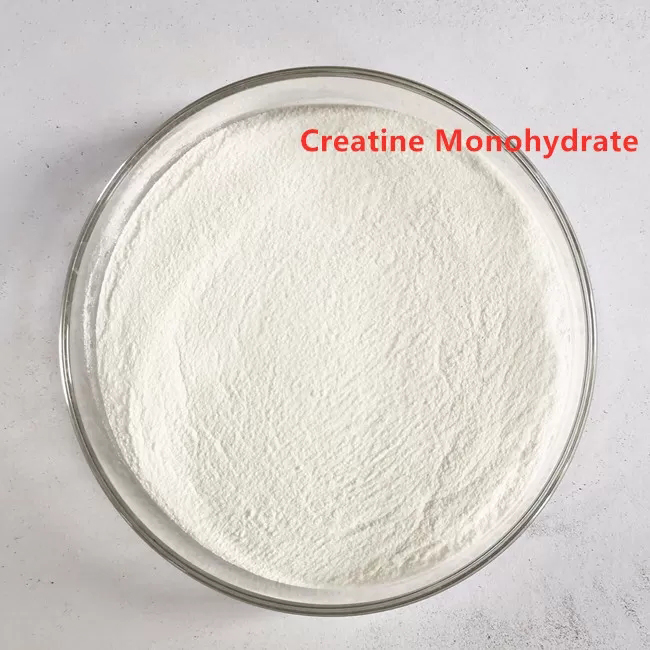Creatine Monohydrate
Creatine Monohydrate is a naturally occurring compound that plays a crucial role in the production of adenosine triphosphate (ATP), the primary energy currency of cells. It is composed of three amino acids: arginine, glycine, and methionine. Creatine is primarily stored in muscles and used during high-intensity, short-duration activities such as weightlifting, sprinting, and other explosive movements.
Key Features of Creatine Monohydrate:
Energy Production: Creatine helps replenish ATP, providing quick bursts of energy during intense physical activities.
Muscle Hydration: Creatine draws water into muscle cells, increasing cell volume and promoting hydration, which may contribute to muscle growth.
Strength and Power: Supplementation with creatine has been associated with improved strength, power, and overall athletic performance.
Recovery: Creatine may aid in faster recovery between bouts of high-intensity exercise.
Applications of Creatine Monohydrate:
Sports Nutrition and Athletic Performance:
Creatine is a popular supplement among athletes and fitness enthusiasts.
It is often used to enhance strength, power, and performance during high-intensity training.
Muscle Building and Bodybuilding:
Creatine is a staple in the bodybuilding community, where it is commonly used to support muscle growth and enhance workout performance.
Rehabilitation and Recovery:
Some studies suggest that creatine supplementation may help with rehabilitation and recovery after injuries or surgery.
Neurological Conditions:
Research has explored the potential benefits of creatine in neurological conditions like Parkinson's disease and traumatic brain injuries due to its neuroprotective properties.
Vegetarian and Vegan Diets:
Creatine is naturally found in meat and fish, so individuals following vegetarian or vegan diets may choose to supplement to maintain optimal creatine levels.
Usage Guidelines and Considerations:
Loading Phase: Some individuals choose to undergo a loading phase of higher creatine intake (typically 20 grams per day) for a week, followed by a maintenance phase of 3-5 grams per day.
Hydration: It's important to stay adequately hydrated when using creatine, as it may increase water retention in muscles.
Individual Responses: Responses to creatine supplementation can vary, and not everyone may experience the same benefits.
Purity and Quality: Choosing a high-quality creatine monohydrate supplement is crucial to ensure purity and effectiveness.










